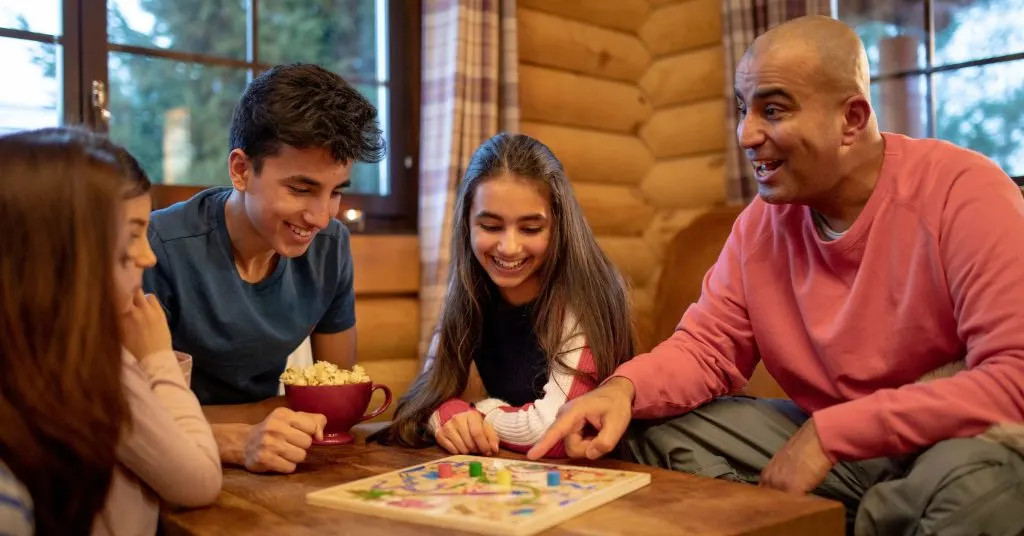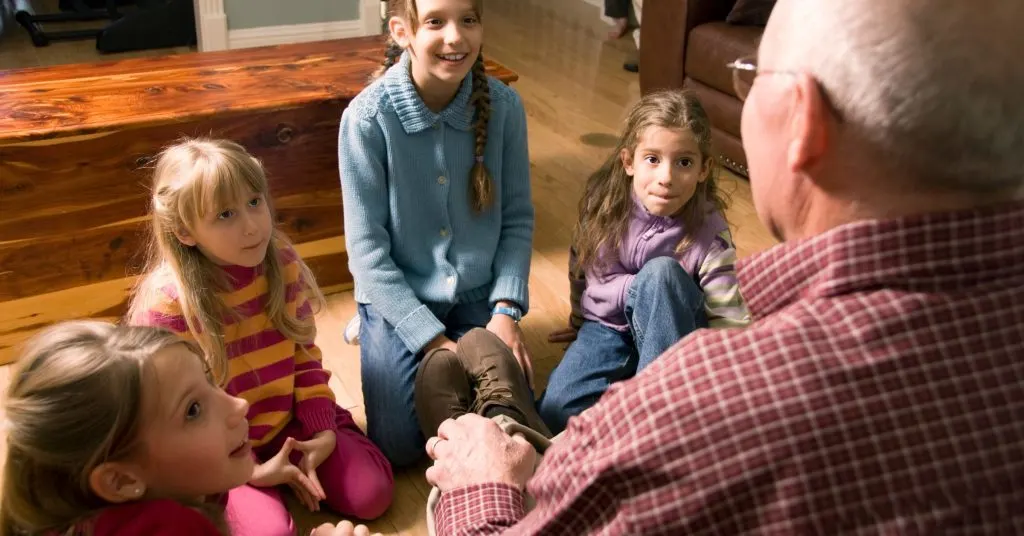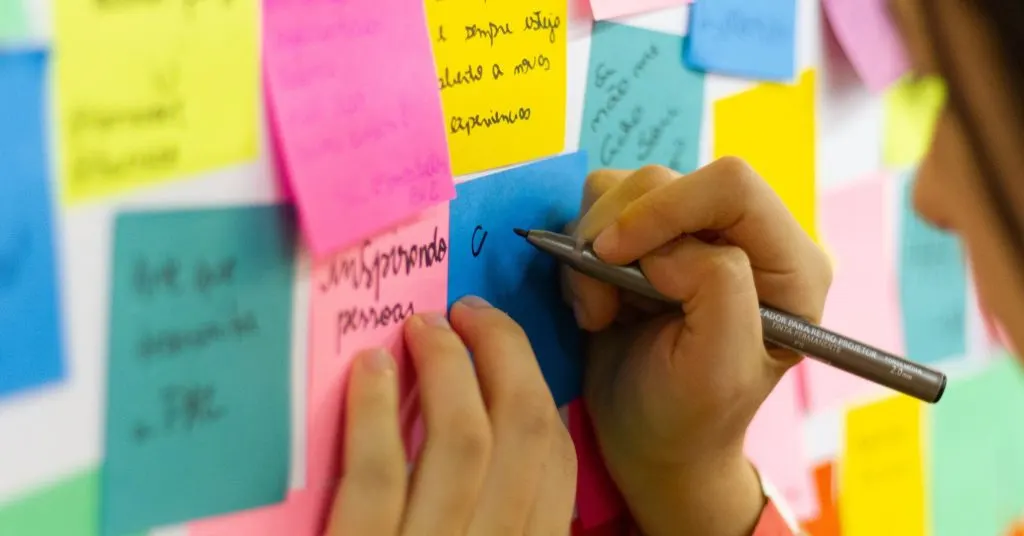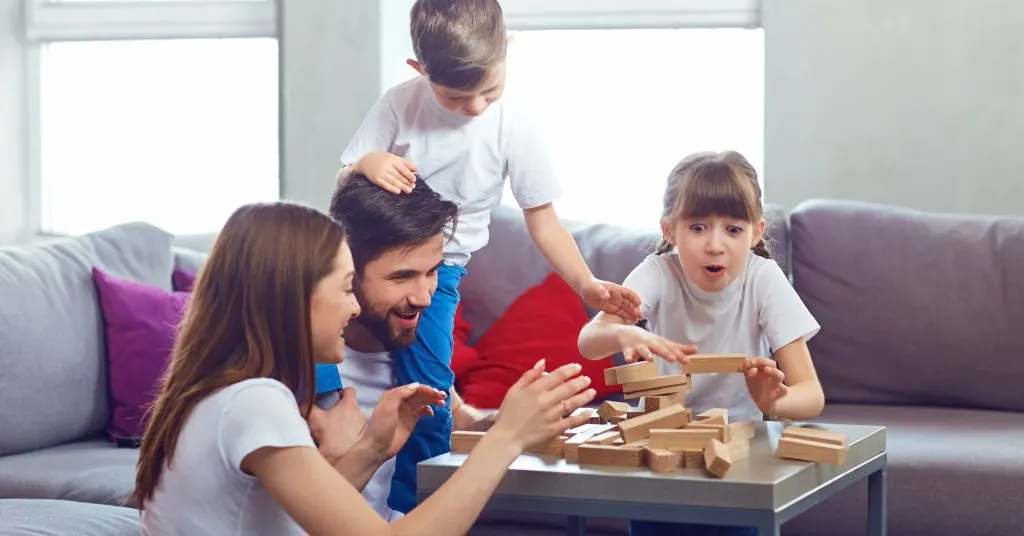The human brain is an incredible super computer that is capable of incredible recollection. But, our daily world is getting infinitely more complicated making it increasingly more difficult to keep your memory sharp. You can start incorporating memory activities for kids to improve brain function of both short term memory and long term memory.
Some people make it their entire personality that they have a poor working memory. They play it off like their brain just won’t create lasting memories. But, memory improvement has been recorded through intentional brain games. That means memory isn’t just hereditary it can be learned.
Skip to:

Value of Memory Activities for Kids
If I were to identify the single most impactful change we made as a family that improved memory, it would be becoming minimalists. Removing unnecessary possessions from our lives and simplifying our schedules had a dramatic effect on our ability to remember things. Even so, keeping your memory sharp across many different scenarios is a prudent thing to do.
Boosting Child Development with Memory Games
Memory activities for kids are more than just fun games. They’re valuable tools for child brain development. Engaging young children in these activities helps enhance their short-term memory and problem-solving skills. Learning games are also a great way to lay the foundation for academic success and long-term memory retention. By integrating simple memory games into their routine, you’re not only entertaining them but also significantly contributing to their cognitive growth.
Older kids, as well as younger children, benefit greatly from memory challenges. Classic memory games like matching pair activities or memory card games are enjoyable and they play a crucial role in sharpening a child’s concentration and executive functions. These educational games come in different ways, catering to various age groups and difficulty levels, ensuring that each child finds them challenging and enriching.
Family Bonding Through Fun Memory Activities
Memory activities for kids are also a fantastic way to strengthen family bonds. When the whole family gets involved in a concentration game or takes turns in a classic game like Simon Says, it’s not just the kids who have fun. These shared experiences are perfect for creating unforgettable family memories. Whether it’s recalling a series of pictures, playing with a deck of cards, or remembering a short story, these moments spent together are invaluable in building strong, happy family relationships.
Incorporating these memory activities into your family’s weekly routine is a fun way to promote your child’s ability to process new information while also enjoying precious family time. As the primary teacher in the school of life, you’re setting the stage for both good memory development and memorable family experiences.
Ritual #1: Classic Memory Games Night
Setting the Stage for a Memorable Game Night
Initiate your family’s week with a Classic Memory Games Night. Transform your living room into a game board haven, where laughter and learning coexist. This weekly ritual is a great way to unwind and an opportunity to enhance your kids’ memory skills.

Rediscovering the Joy of Traditional Memory Games
Begin with the timeless classic memory game – matching cards. It’s a simple game, yet effective for all ages. Challenge your family to find every matching pair, turning it into a playful competition. Next, shift to Simon Says, a great game that tests memory and attention span. Each round, the next player adds another command, making the sequence longer and more challenging.
Introducing Innovation in Classic Games
Why not put a twist on these classic games? For the Magic Cup Game, use household items like paper cups to hide small objects. It’s a fun way to test and improve visual memory skills. Another variation could involve creating a shopping list and asking the next person to recall items in the correct order, adding a new item each turn. This not only tests memory but also encourages creativity and quick thinking.
Benefits Beyond Just Fun
These classic memory games are more than just a source of entertainment. They’re educational games that significantly boost your child’s memory, concentration, and problem-solving skills. By engaging in these activities, kids develop important cognitive skills while older children and adults get a chance to exercise their brains too.
Incorporating a Classic Memory Games Night into your weekly routine means creating lasting, fun memories while enhancing your child’s cognitive abilities. It’s the perfect blend of joy and learning, making it one of the best memory games rituals for families.
Ritual #2: Creative Storytelling and Observation Sessions
Unleashing Imagination with Storytelling Games
Embrace the magic of storytelling as your second weekly ritual. This fun way of engaging with memory activities for kids not only sparks their imagination but also enhances their language skills. Gather your family and take turns creating a short story, incorporating a list of words. Each next person adds their own twist, making the story richer and more imaginative. This simple memory game encourages kids to remember details and express them in their own words.

Boosting Observation Skills with Fun Challenges
Turn your attention to observation games, which are fantastic for developing visual memory skills. A classic game like “What’s Missing?” involves displaying several objects, then removing one and asking the kids to identify the missing item. For older children, up the challenge by increasing the number of objects or reducing the observation time. These fun challenges are a great way to improve memory.
Pro Tip: Help your kids get the wiggles out by asking them to gather the different objects you will use in the game. Give them a time limit to gather 20 items, you can make it even more challenging by requiring all the objects to be the same color.
The Educational Benefits of Creative Play
These storytelling and observation sessions are more than just fun memory games. They are educational games that aid in building a child’s ability to process and recall information. Through these playful activities, children enhance their memory, critical thinking, and creative expression.
By making Creative Storytelling and Observation Sessions a weekly family tradition, you’re creating fun memories as well as developing your child’s memory, attention, and creativity in an enjoyable and interactive way. It’s a perfect combination of education and entertainment, making learning an adventure for kids of all ages.
Ritual #3: Real-Life Memory Challenges
Integrating Memory Skills into Everyday Activities
Transform everyday routines into exciting memory challenges for kids. This third weekly ritual is all about applying memory skills to real-life situations. It’s a great way to reinforce what they’ve learned and see the practical application of their developing skills.
Creative Memory Tasks for Daily Life
Start with a fun grocery store challenge. Before heading out, create a shopping list and encourage your child to remember as many items as possible. As you shop, ask them to recall the items. For older children, increase the number of items or add specific details like brand names or quantities. This activity not only tests memory but also teaches practical life skills.

Building Memory Skills with Everyday Tasks
Another engaging real-life memory activity involves remembering phone numbers or addresses. Make it a game to remember and dial a family member’s number or navigate to a known location without assistance. These tasks, though simple, are effective in enhancing a child’s short-term memory and attention to detail.
Impact of Real-Life Memory Games on Skill Development
These real-life memory games are more than just fun activities. The object of the game is to build a strong memory foundation. By incorporating memory challenges into everyday tasks, children learn to apply their memory skills in various contexts, boosting their confidence and independence. These activities also improve their street smarts and enhance their ability to process and retain new information.
Incorporating Real-Life Memory Challenges into your family’s weekly routine offers a fun way to strengthen memory skills while handling day-to-day tasks. You’re turning ordinary moments into opportunities for learning and growth, ensuring that your child’s memory development is continuous and integrated seamlessly into their daily life.
Enhancing Memory Activities for Kids Experience
Adapting Games for Various Skill Levels
To keep memory activities for kids both challenging and exciting, it’s important to adapt them to different skill levels. For younger children, start with simpler games like matching pairs or basic storytelling. As they grow, introduce more complex tasks like longer shopping lists or intricate stories. This progression not only maintains their interest but also ensures continuous skill development.
Using Diverse Materials for Fresh Challenges
Keep the memory games engaging by varying the materials used. For example, use sticky notes for a memory wall where each note has a word or number to remember. Or use a set of drums to make different patterns of drum beats that the next person has to copy. This variety not only makes the activities more fun but also helps in developing a wider range of memory skills, from visual to auditory memory.

Involving Kids in Planning and Execution
Encourage your children to take part in planning these memory activities. Let them choose the games for the week or come up with their own variations. This involvement boosts their enthusiasm and gives them a sense of ownership. It also encourages creativity, as they think of different ways to test memory.
Lasting Benefits of Enhanced Memory Games
By enhancing the memory game experience, you’re providing entertainment and aiding in your child’s cognitive development. These varied and adaptable activities promote better memory retention, problem-solving skills, and even enhance processing speed. Memory activities for kids are more than just games, they become essential tools for educational and personal growth.
Enhancing your family’s memory game experience is about keeping it fun, fresh, and challenging. Create an environment where learning is an adventure and where every family member, from the youngest to the oldest, can contribute, learn, and grow together.
Building Lasting Memories and Skills
Reflecting on the Weekly Rituals
It’s clear that memory activities for kids are much more than just games. They are valuable tools for nurturing both family bonds and cognitive development. Implementing weekly rituals to improve memory can keep your child from having a hard time with their memory later in life.
Explore fun activities to keep kids entertained during your vacation.
Using Technology for Better Memory
Another layer to your memory activities for kids can be to incorporate technology. There are many digital games that encourage kids to remember details or solve problems based on what they learn within the game. Online memory games can be strictly learning focused like memorizing sight words or fun focused like Minecraft where kids navigate and build within a virtual world.

Encouraging Continued Family Engagement
I hope these memory activities for kids inspire you to make memory-building a regular part of your family time. Don’t hesitate to mix things up and create new challenges as your family grows and changes. The most important thing is to keep making those unforgettable family memories.


